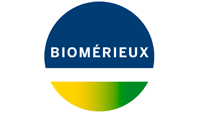Sepsis and Septic Shock on the Rise, Affecting Younger Patients
11 January, 2010Physicians Attribute Antimicrobial Resistance and the Spread of Multi-Drug Resistant Organisms (MDRO) to Antibiotic Overuse
bioMérieux, a world leader in the field of in vitro diagnostics, today released its results of a comprehensive survey of emergency department and critical care physicians. The vast majority of these doctors reported that sepsis and septic shock—the result of serious infections—is on the rise in U.S. hospitals, affecting increasingly younger patients. The surveyed doctors attributed the increase to the overuse of antibiotics, which is rendering these once wonder-drugs ineffective.
Sepsis, a usually fatal medical condition caused by the body’s response to a severe infection of the blood and/or tissues, affects 5-10 percent of all hospital patients, leading to an increase of about $5 billion in U.S. health-care costs annually.1 Nearly 300 emergency and critical care doctors were surveyed at two major medical conferences – the American College of Emergency Physicians Annual Conference, held in Boston in October 2009, and the American College of Chest Physicians Annual Meeting, held in San Diego in November 2009.
When asked if they have seen an increasing rate in sepsis in their hospitals during the last decade, the answer was unequivocally “yes.” Seventy-six percent of the physicians surveyed said the incidence of sepsis is on the rise. In addition, nearly 60 percent said sepsis is affecting a growing number of younger patients than it did 10 years ago.
Sixty-three percent of doctors surveyed indicated that the No. 1 reason for younger patients becoming septic was an increase in multi-drug-resistant microorganisms, which is caused by the widespread overuse of antibiotics. In a recent study published by Roberts et al, examining the hospital and societal costs of antibiotic-resistant infections (ARIs) at a Chicago hospital, patients who suffered from these infections remained in the hospital between 6.4-12.7 days longer than those who were not infected and had a significantly increased risk of death – two-fold higher than in patients without ARIs, with an attributable mortality rate of 6.5 percent.2
“Sepsis is often a life-threatening condition, compounded by multidrug-resistant organisms and patients who live longer with serious underlying co-morbidities,” said Mark H. Oltermann, M.D., director of the Medical ICU at John Peter Smith Hospital in Fort Worth, Texas.
When asked if biomarkers, or telltale biochemical indicators of infection, are used to help diagnose severe infections that could lead to sepsis, the vast majority (nearly 70 percent) of the 281 surveyed doctors said yes. However, only 6 percent of these doctors reported using procalcitonin (PCT) as a biomarker to help them manage suspected sepsis patients. When asked to qualify the improvement that PCT testing could bring to emergency and critical care patients, 51 percent said the test would dramatically improve the quality of care that patients with suspected sepsis would receive in U.S. hospitals.
“Sepsis is a disease that when diagnosed early and treated effectively, more lives can be saved than almost any other disease,” Dr. Oltermann added. “It is critical that we add state-of-the art tools to our arsenal to help battle sepsis. PCT is one of those tools.”
To review the complete results of the 2009 Sepsis Survey Report, which covers additional aspects of sepsis diagnosis and care, infectious diseases biomarkers, and how ED and CC physicians rank in importance the timely issues of health-care reform, liability reform, and the emergence of multidrug-resistant organisms, please visit www.biomerieux-usa.com/knowfromday1.
About Procalcitonin (PCT)
PCT is the prohormone of calcitonin and is not normally present in the bloodstream of a healthy individual. PCT is released from multiple organs when there is a systemic bacterial infection. The blood plasma level of PCT is a reflection of the severity of bacterial infection, ranging from slightly elevated concentrations in infections with minor systemic inflammatory response to very high values in cases of severe sepsis and septic shock. Since the first report in 1993 on the association of serum PCT levels with bacterial infection,3 there is a solid body of evidence in the literature on its utility for early diagnosis and prognosis, monitoring the clinical course as well as its utility to guide therapy.4
1 Balk, R. Severe Sepsis and Septic Shock: Definitions, Epidemiology, And Clinical Manifestations; Critical Care Clinics, Volume 16, Issue 2, Pages 179-192.
2 Roberts RR, Hota B, Ahmad I, Scott RD II, Foster SD, Abbasi F, Schabowski S, Kampe LM, Ciavarella GG, Supino M, Naples J, Cordell R, Levy SB, Weistein RA. Hospital and Societal Costs of Antimicrobial-Resistant Infections in a Chicago Teaching Hospital: Implications for Antibiotic Stewardship. Clin Infect Dis 2009:49 (15 October):1175-84.
3 Assicot M, Gendrel D, Garsin H, et al. High serum procalcitonin concentrations in patients with sepsis and infection. Lancet 1993; 341: 515-518.
4 Christ-Crain M, Müller B. Procalcitonin in bacterial infections – hype, hope or more or less? Swiss Med Wkly 2005; 135: 451-460.
About bioMérieux
Advancing diagnostics to improve public health
A world leader in the field of in vitro diagnostics for more than 45 years, bioMérieux is present in more than 150 countries through 39 subsidiaries and a large network of distributors. In 2008, revenues reached €1.111 billion with 84% of sales outside of France. bioMérieux provides diagnostic solutions (reagents, instruments, software) that determine the source of disease and contamination to improve patient health and ensure consumer safety. Our products are used for diagnosing infectious diseases and providing high medical value results for cancer screening and monitoring and cardiovascular emergencies. They are also used for detecting microorganisms in agri-food, pharmaceutical and cosmetic products. bioMérieux is listed on the NYSE Euronext Paris market (Symbol: BIM – ISIN: FR0010096479).
Other information can be found at www.biomerieux.com.
bioMérieux Contacts
bioMérieux
Allan Mohess
Tel: + 1 919 620-2937
allan.mohess@na.biomerieux.com
Fleishman-Hillard
Sarah Bearce
Tel: + 1 216 928-3476
sarah.bearce@fleishman.com

